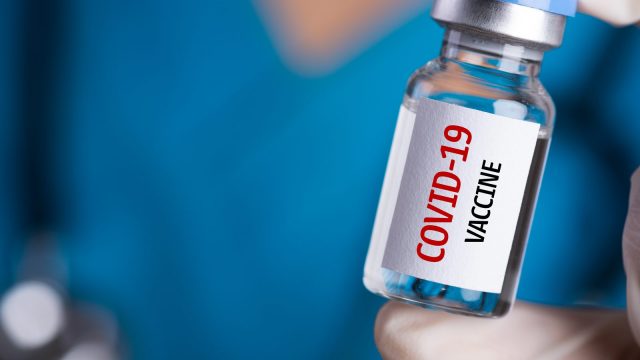Q1. Which vaccines are available in Qatar?
A. Qatar is currently administering the Pfizer/BioNTech vaccine and the Moderna vaccine. Both vaccines have been approved for emergency use by the Department of Pharmacy and Pharmaceutical Control in the Ministry of Public Health. The MOPH approval of the Pfizer and BioNTech and Moderna vaccines follows similar approvals in other countries including the United States and United Kingdom. Both vaccines are very similar, and people should not be concerned which vaccine they are given.
Q2. What are the current priority groups for vaccine eligibility?
- People aged 40 years of age and above regardless of their health conditions
- People with moderate chronic medical conditions
- Additional Healthcare professionals and other key workers in different ministries and industries, including teachers and school administration staff in education.
Q3. I am young and healthy so why do I need the COVID-19 vaccine?
A. Young and healthy people may be at low risk of developing serious complications from COVID-19 but they have the same risk of catching the virus as other people and they can then transfer the virus onto more vulnerable people including elderly relatives. Taking the vaccine is as much about protecting others as about protecting yourself.
Q4. Is the Pfizer and BioNTech and Moderna vaccines approved for children?
A. No. The trials of the vaccine have focused on safety and efficacy of the vaccine for adults and the MOPH’s Pharmacy and Drug Control Department has currently approved the Pfizer and BioNTech vaccine for use only for people aged 16 years and older, and Moderna vaccine for people aged 18 years and over.
Q5. Can people who suffer from allergies take the vaccine?
Q6. The COVID-19 vaccines are being developed and tested very quickly – will they be safe?
A. Yes. Despite the speed at which the COVID-19 vaccines are being developed and tested, they are still following a strict testing and approval process. It is important to note that the whole world is committed to finding a safe and effective COVID-19 vaccine and never before has so much effort and resources been put into the development of a vaccine.
Q7. Will life return to normal once the COVID-19 vaccines are available in Qatar?
A. 2020 has been a difficult year for people around the world and COVID-19 has impacted many aspects of daily life. The arrival and widespread uptake of the approved COVID-19 vaccines among Qatar’s population will hopefully enable us to return to our pre-COVID-19 lifestyles.
Q8. Will the COVID-19 vaccines be free for citizens and residents of Qatar?
A. Yes. Qatar will provide the COVID-19 vaccines to citizens and residents free of charge.
Q9. Do I need the COVID-19 vaccine if I have already had the virus?
A. Yes. COVID-19 is still a relatively new and unknown virus and while research to date indicates that people who have been infected with COVID-19 build up natural immunity it is unclear how long this immunity last for and how effective it is.
Q10. What can I do to protect myself and others while we await the COVID-19 vaccine?
A. As we await the approval and distribution of the COVID-19 vaccines it is very important that people follow basic preventive measures to protect themselves and those around them from the virus: wear a mask as advised; maintain social distancing; avoid large gatherings of people; and wash hands regularly.
Q11. Are vaccinated people exempt from quarantine requirements?
A. Yes. Fully vaccinated people are now exempt from quarantine requirements following travel abroad and following exposure to a COVID-19 positive case. The quarantine exemption criteria are:
- 14 days must have passed after receiving the second dose before returning into Qatar.
- Negative PCR test is required on return to Qatar following travel or following exposure.
- The quarantine exemption is valid for a period of six months, starting 14 days after the second dose.
Q12. How can eligible people get a vaccination appointment?
Q13. Are there any side effects of the vaccines?
A. Extensive clinical trials and real-life use of the vaccine on more than 200 million people around the world has shown the Pfizer/BioNTech and Moderna vaccines to be safe. However, as with any vaccine, people may experience mild side effects including low-grade fever, mild headache, fatigue and soreness at the injection site.
Q14. How effective are the vaccines?
A. Extensive clinical trials on the Pfizer/BioNTech and Moderna vaccines show both vaccines are around 95 percent effective at preventing symptomatic COVID-19 infection after two doses.
Q15. Why is the quarantine exemption for vaccinated people only valid for six months?
A. The six-month exemption period has been set in line with recommendations from the US Centers for Disease Control and is based on current clinical evidence. As the COVID-19 vaccines are still relatively new vaccines ongoing work is underway to determine the full duration of the protection they offer.
Q16. Can people who undergoing home quarantine due to being in contact with a positive case receive the vaccine?
A. People undergoing home quarantine who have a vaccination appointment scheduled during their period of quarantine should contact PHCC on 40277077 to discuss rescheduling their appointment.
Q17. Is it possible that someone vaccinated against COVID-19 will still get infected?
A. No vaccine is 100 percent effective. Extensive clinical trials on the Pfizer/BioNTech and Moderna vaccines show both vaccines are around 95 percent effective at preventing symptomatic COVID-19 infection after two doses. This is a very high and encouraging efficacy level but there may still be a very small number of people who receive the vaccine and still become sick due to COVID-19.
Q18. Is it safe for pregnant women, those planning to become pregnant, and breastfeeding mothers to receive COVID-19 vaccines?
A. While there is no evidence to suggest the Pfizer/BioNTech, and Moderna vaccines are unsafe for pregnant or breastfeeding women, there is currently insufficient clinical evidence to confirm their safety. However, the decision to vaccinate these individuals is made on case by case basis. The physician will decide if the benefit of vaccinating the woman outweighs the potential vaccine risks i.e. if the women is having a healthy pregnancy with no high risk of exposure, it is recommended to postpone the vaccination.
Q19. Does the COVID-19 vaccine affect the fertility of women or men?
A. There is no evidence, and no theoretical reason, that any of the vaccines can affect the fertility of women or men. People of reproductive age should get a COVID-19 vaccine when they receive their invitation, including people who are trying to have a baby or thinking about having a baby in the near future.





